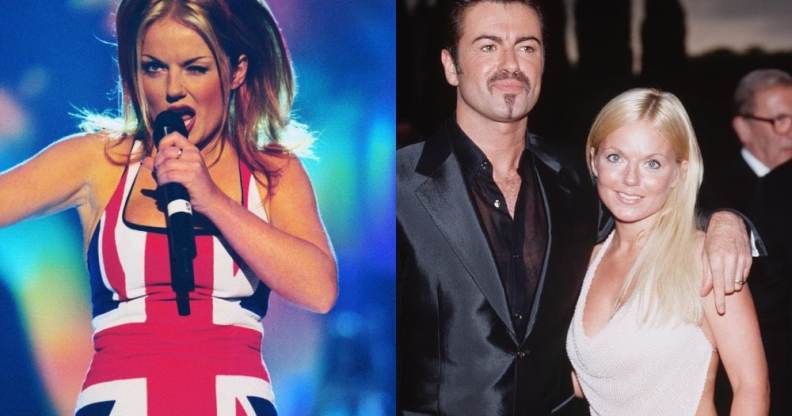Geri Horner was sent death threat by Admiral Duncan bomber ‘for loving the gays and being friends with George Michael’

Geri was close friends with George Michael. (Getty)
Geri Horner (née Halliwell) has revealed Admiral Duncan bomber David Copeland threatened to kill her over her friendship with the late George Michael and her support for the LGBT+ community.
Geri told The Sun that Copeland threatened to shoot her on stage at the BRIT Awards 2000. The year prior, he had murdered three people and injured 79 by planting a nail bomb at the Admiral Duncan, a gay bar in London’s Soho.
The singer was preparing to give her debut solo performance at the awards when police advised her to pull out after intercepting the threat. She refused.
“[He] hated the fact I hung out with the gays, and was friends with George Michael,” Geri said.
“He hated me for camping it up, for loving the gays and for being friends with George. I told him to do one.”

Geri was a close friend of George Michael. (Getty/John Rogers)
Geri said that “Scotland Yard were involved”, and that police had visited her at home to warn her officially.
“They said they had to give me the freedom to choose whether I performed or not, but that they advised me to pull out of the ceremony,” she continued.
“But I said: ‘I’m sorry, I’m not going to be bullied by this.’
“We are judged by what we do, not what we say – and I will always stand with my friends.
“It’s about spirit, not sexuality – I feel so protective of any person who has had prejudice against them.”
Geri eventually went ahead with the performance, emerging from between two inflatable legs to perform “Bag It Up” with an army of topless, oiled male dancers as her then-former Spice Girl bandmates looked on.

Geri Halliwell (as she was then known) performing at the BRITs in 2000. (Getty/JMEnternational/Redferns)
Copeland had been arrested in May 1999 for planting three nail bomb across London – at the Admiral Duncan, and in Brixton and Brick Lane, targeting Black and Bangladeshi communities respectively. Three people were murdered at the Admiral Duncan, with 139 injured across the three attacks.
Copeland was a confessed homophobe, racist neo-Nazi who was obsessed with Hitler and bombs. Psychiatrists diagnosed him with paranoid schizophrenia, however his pleas of manslaughter on the grounds of diminished responsibility were rejected.
He was found guilty of murder, and sentenced to six concurrent life sentences in June 2000.

